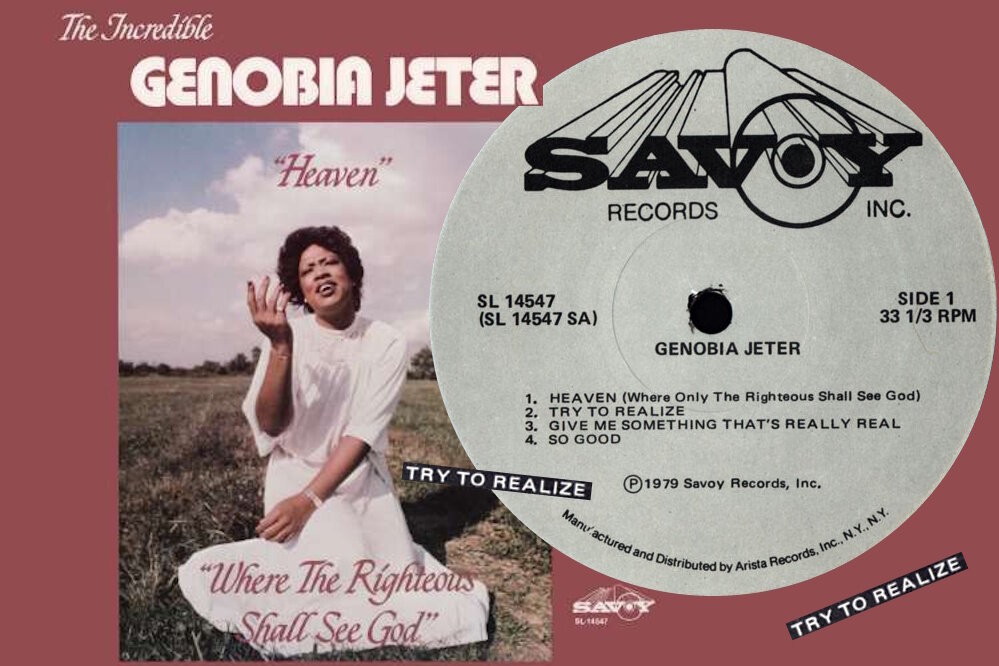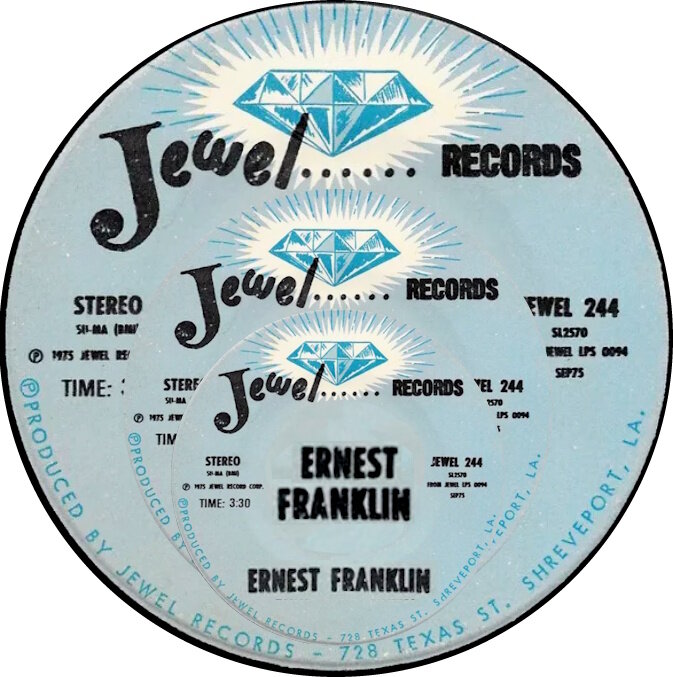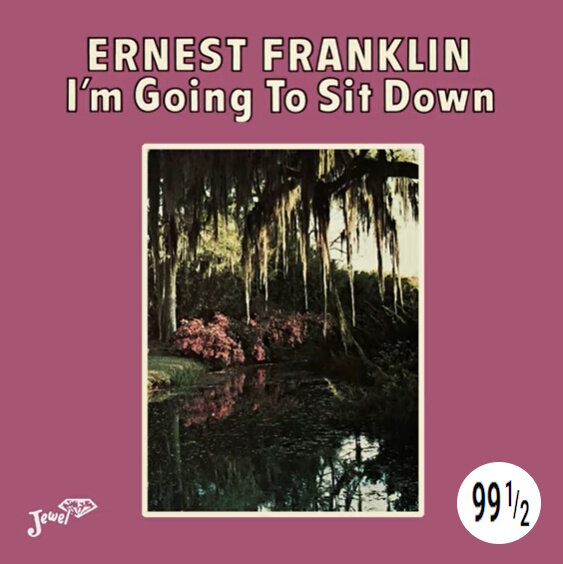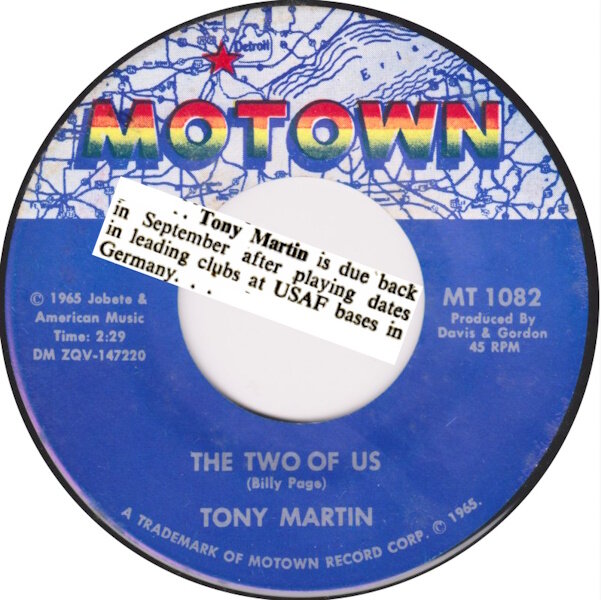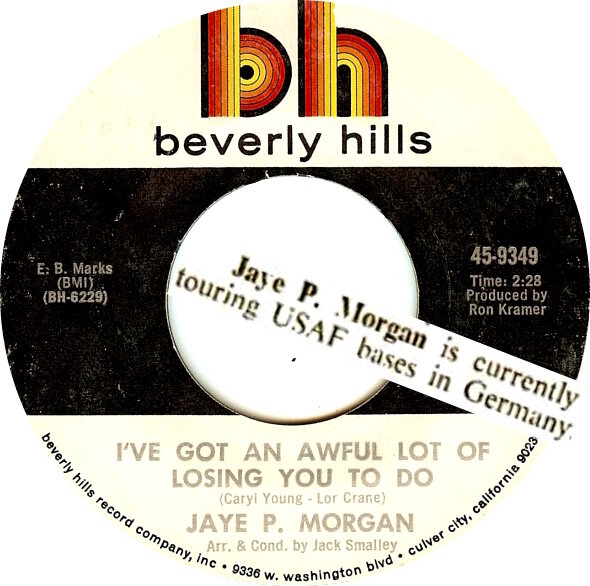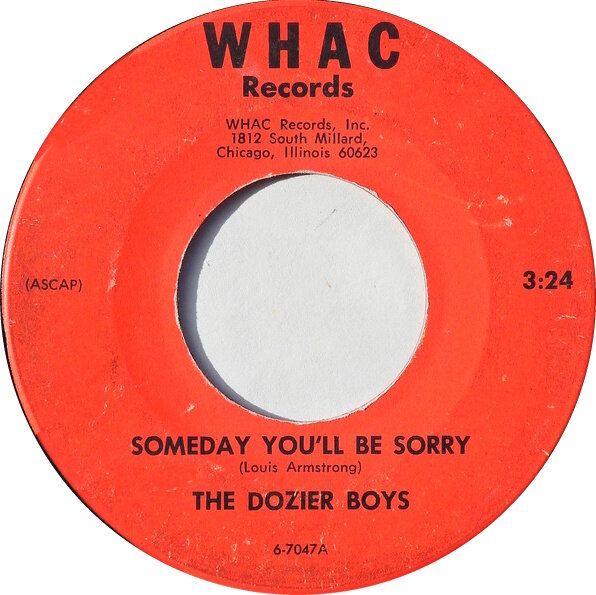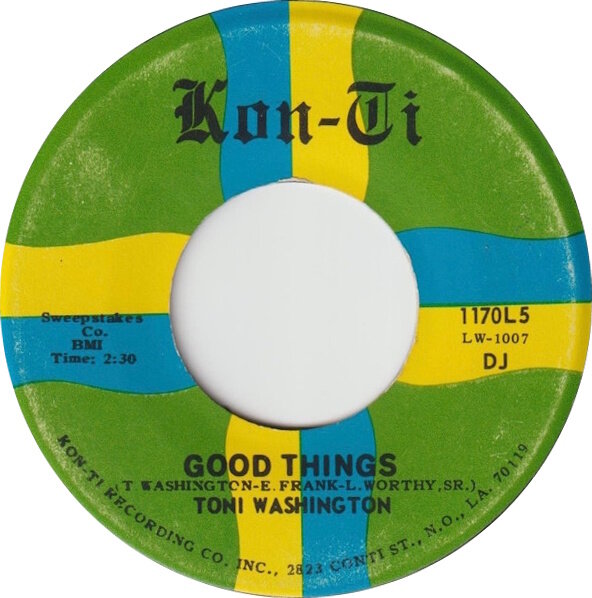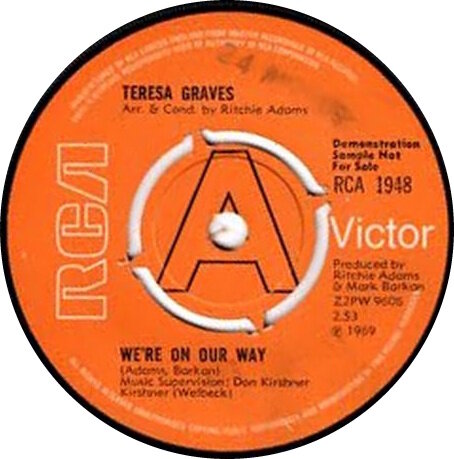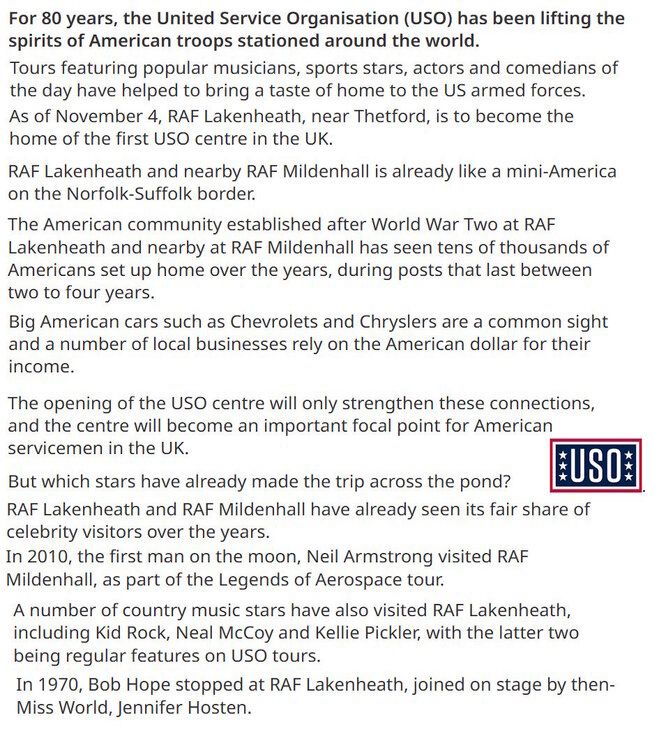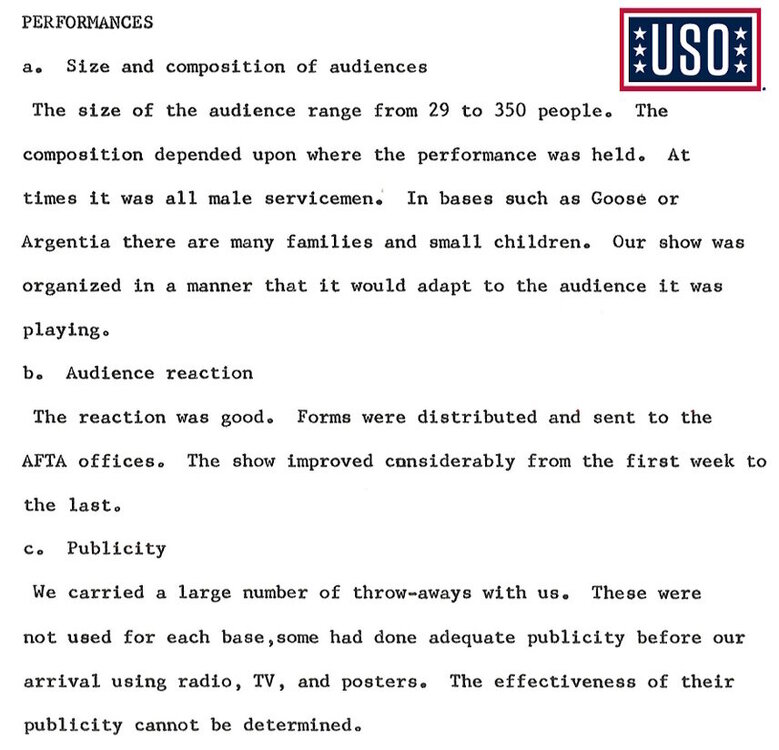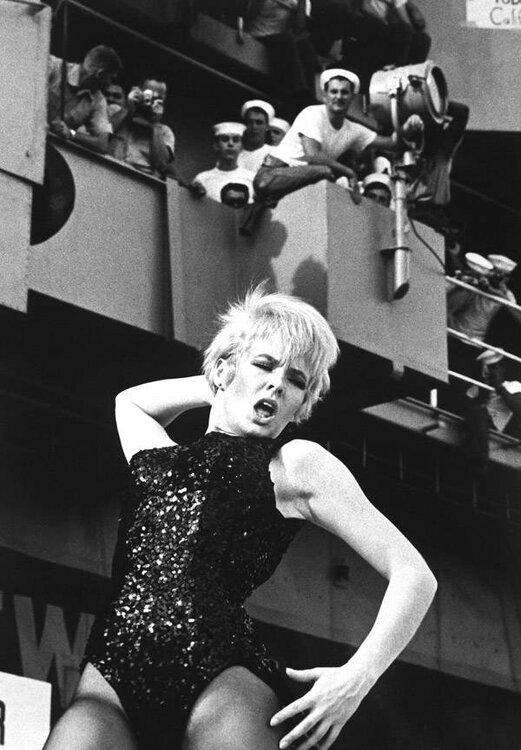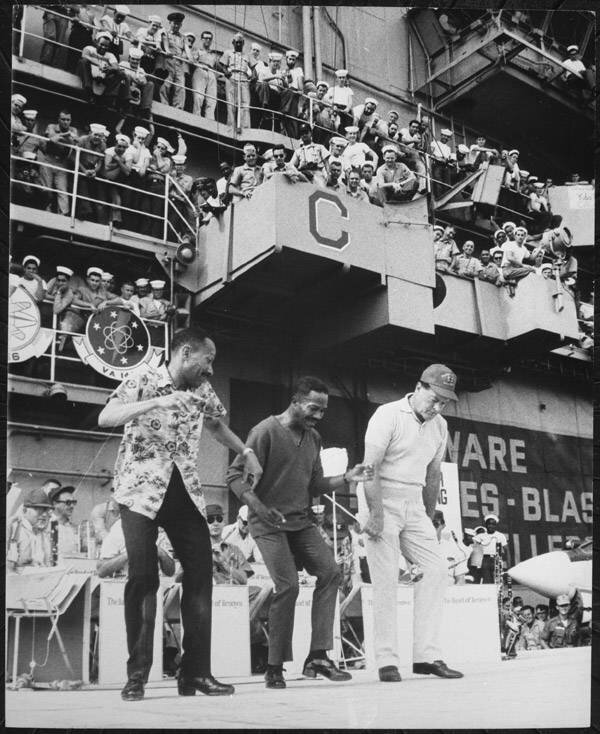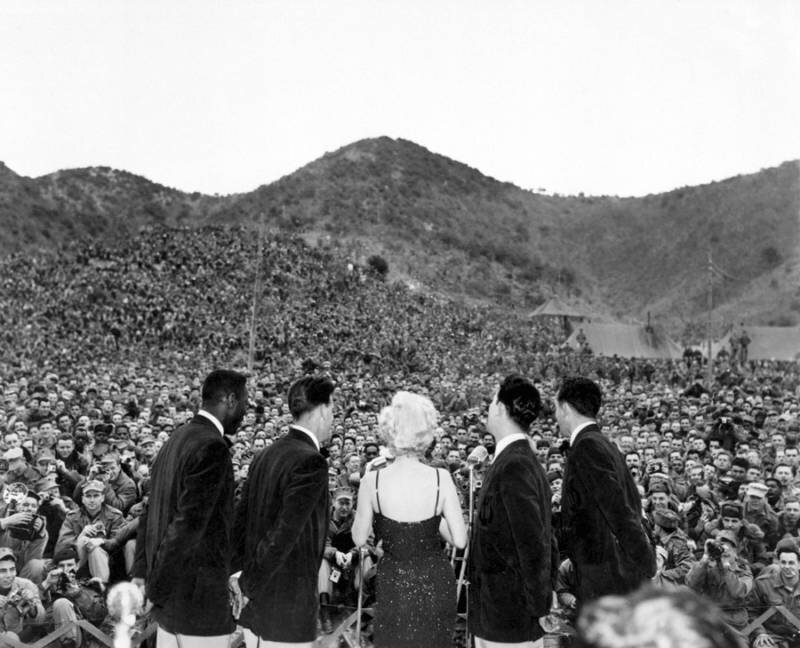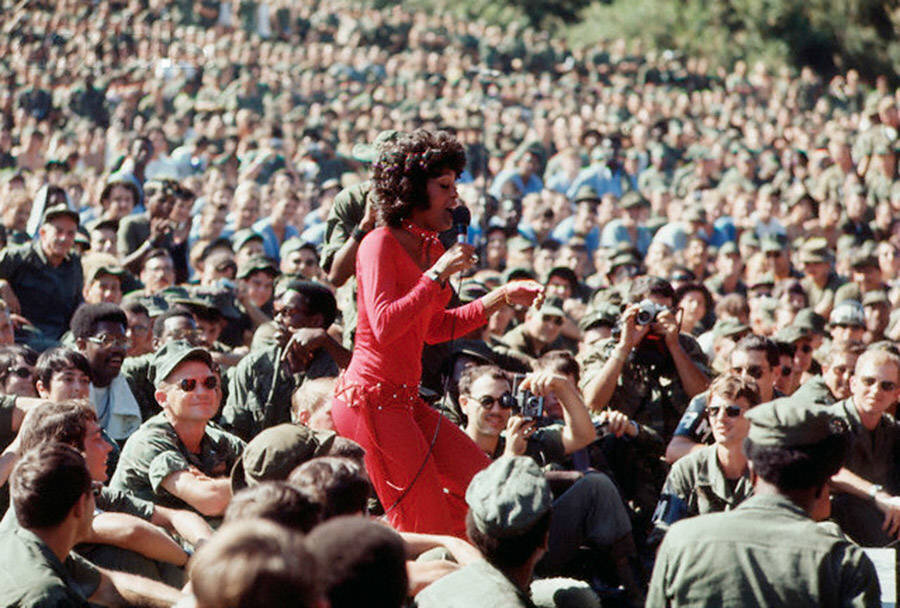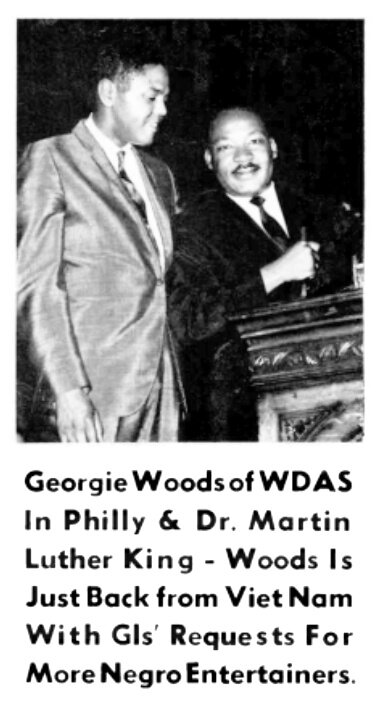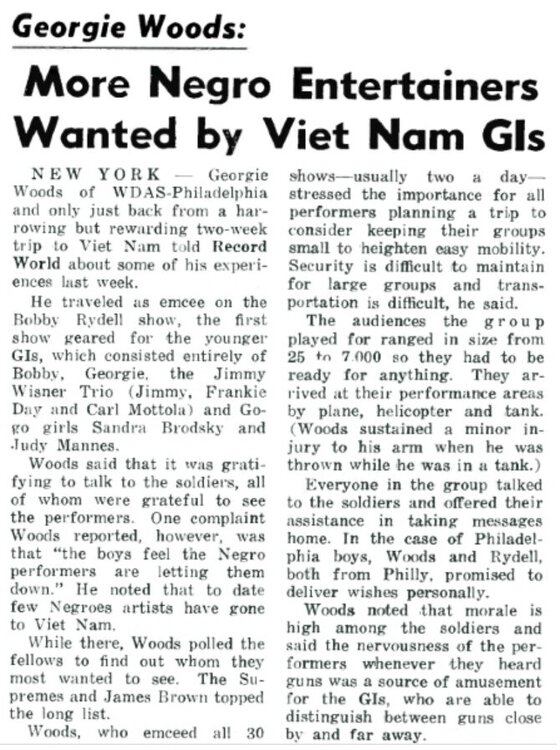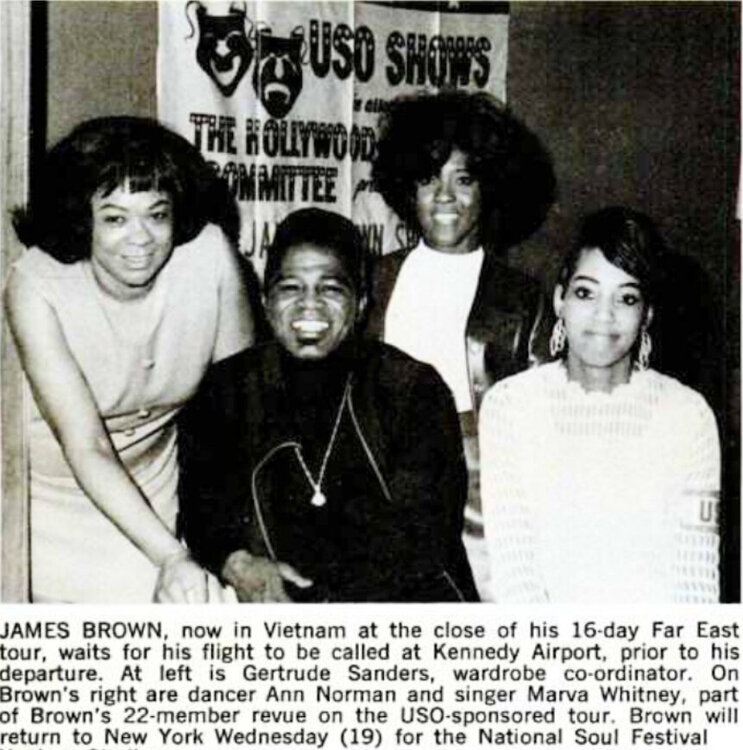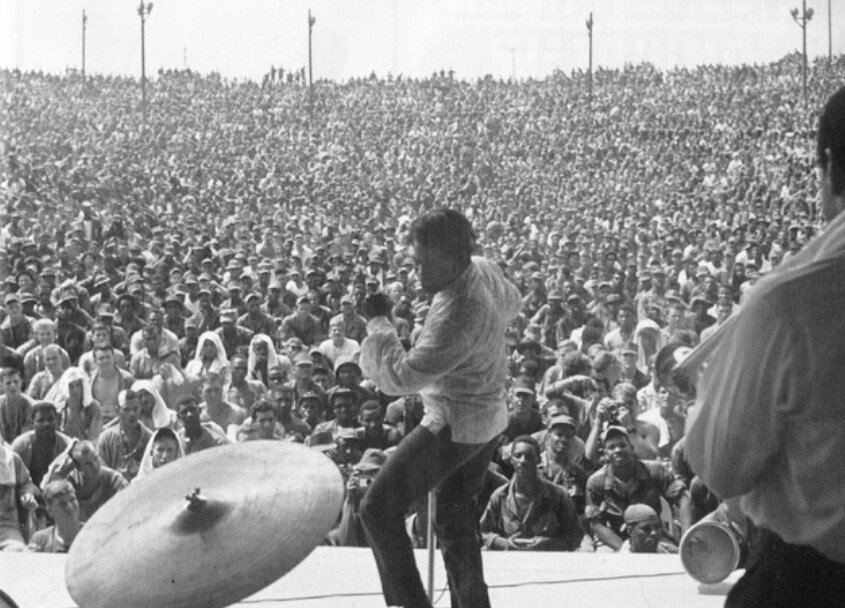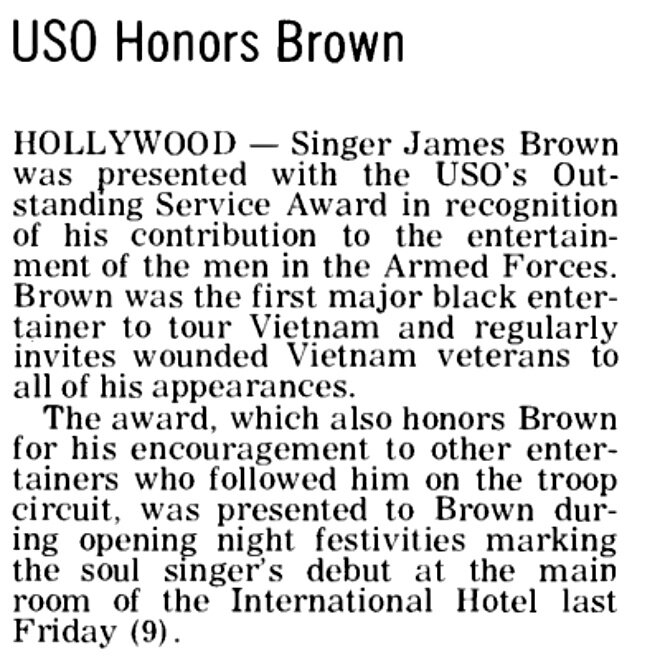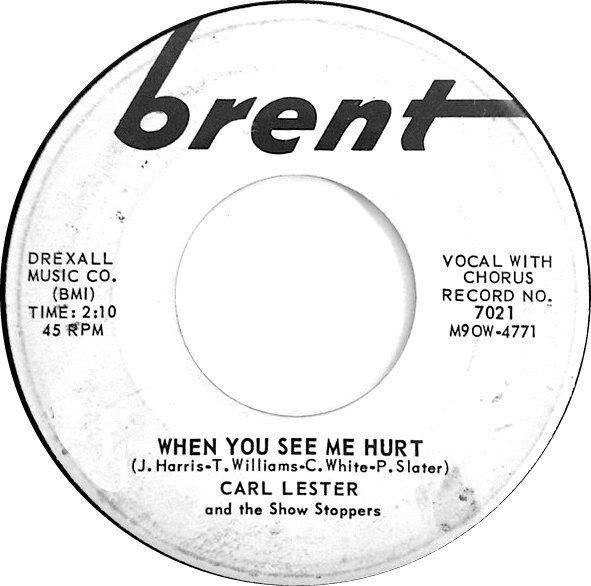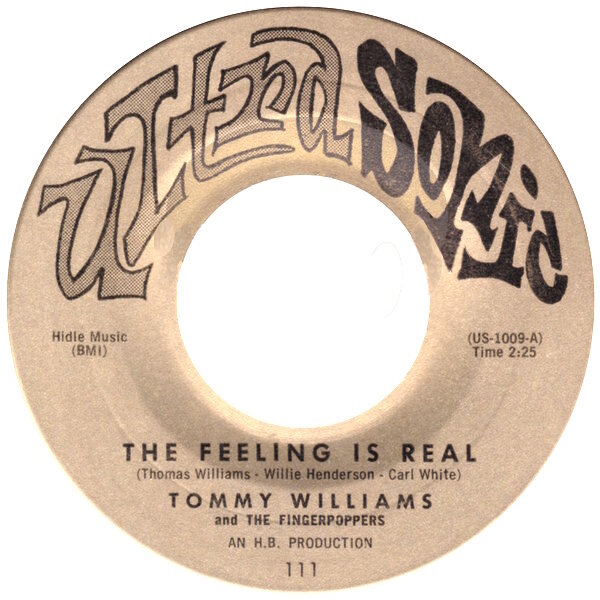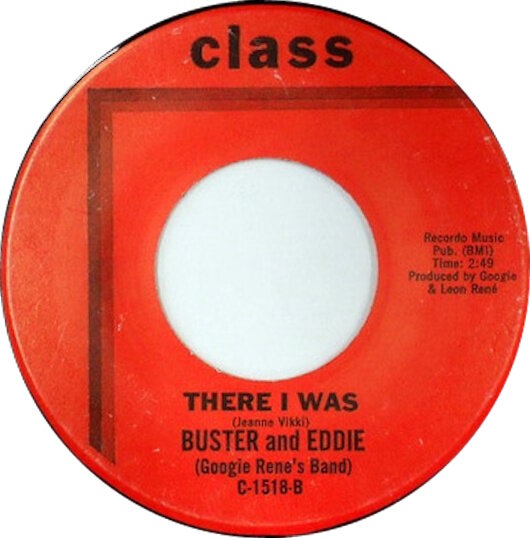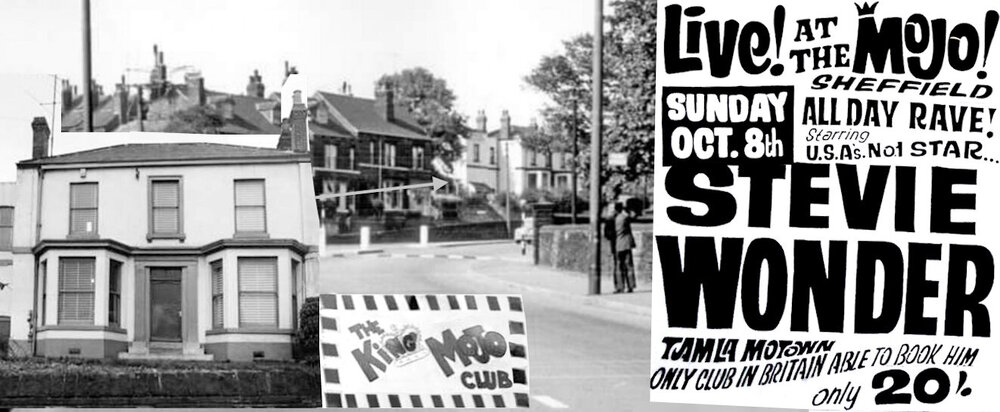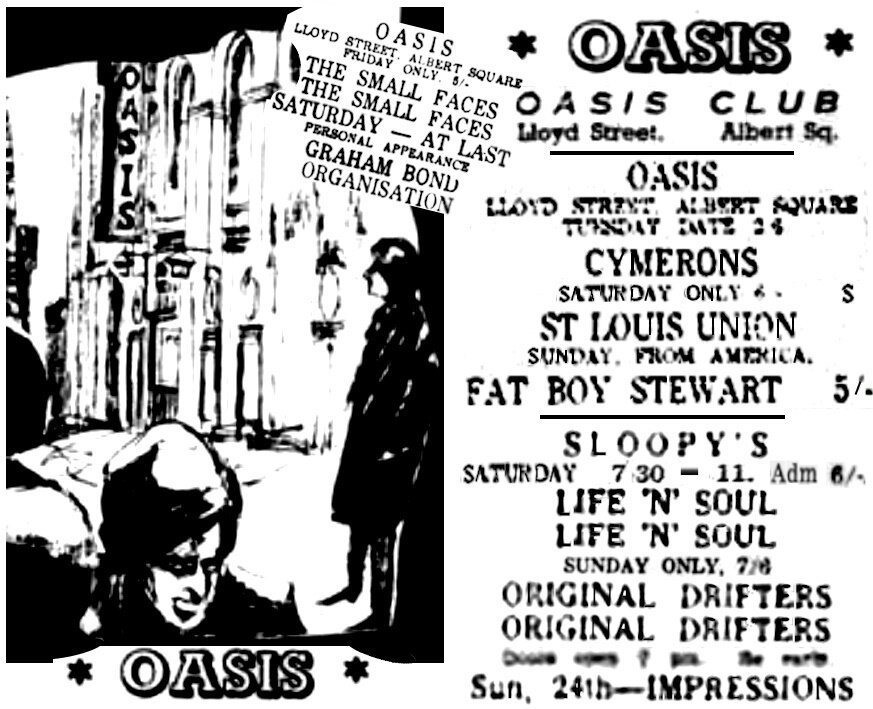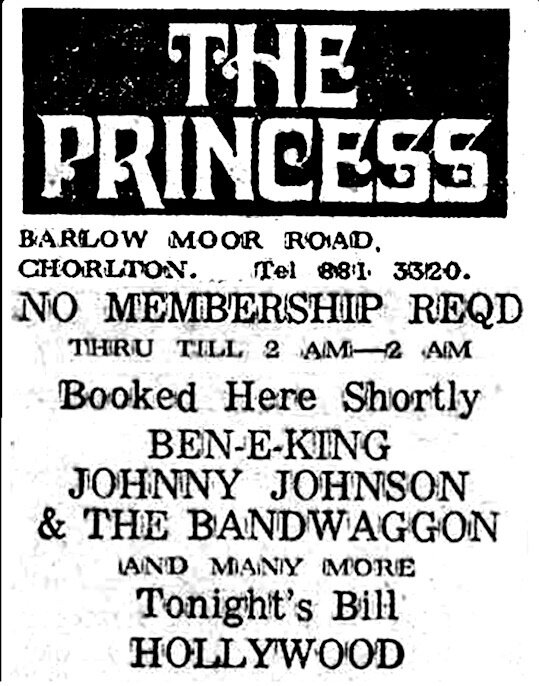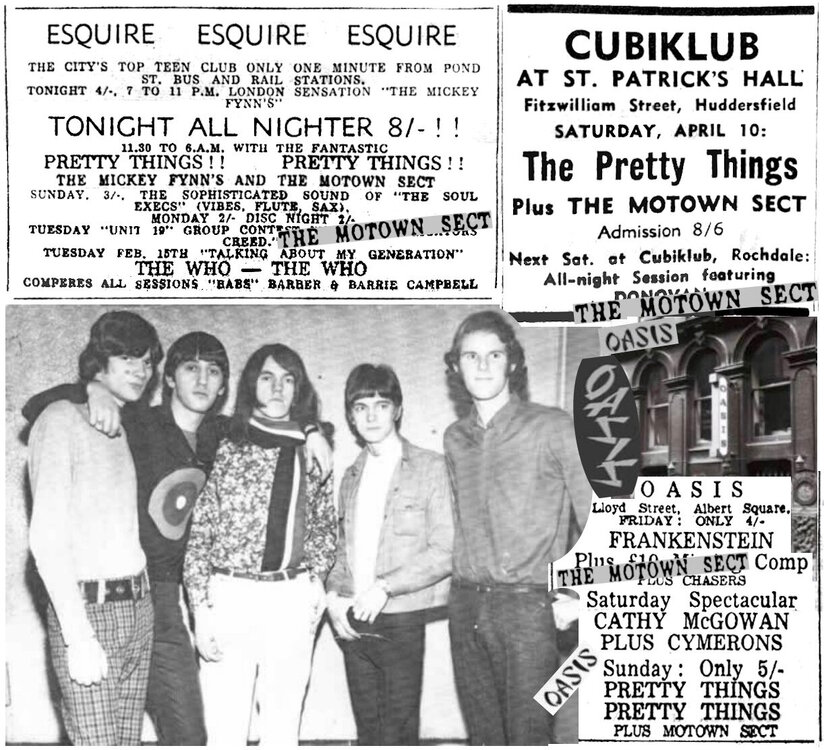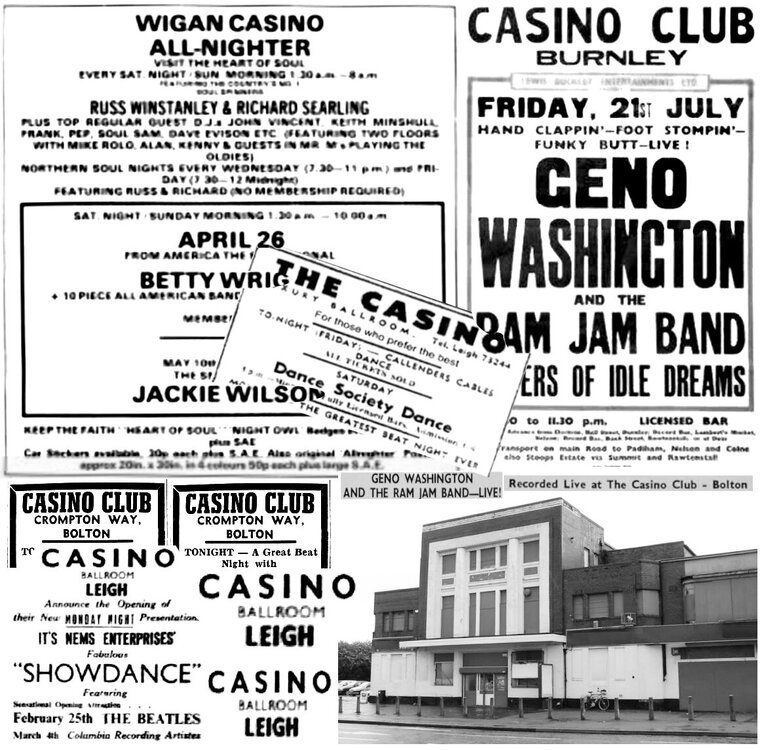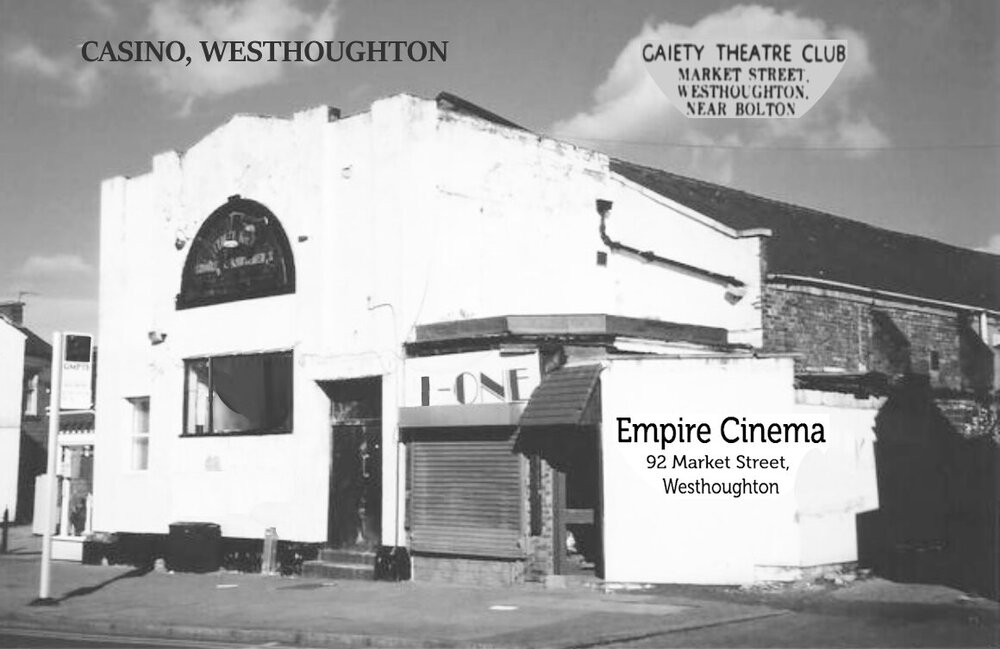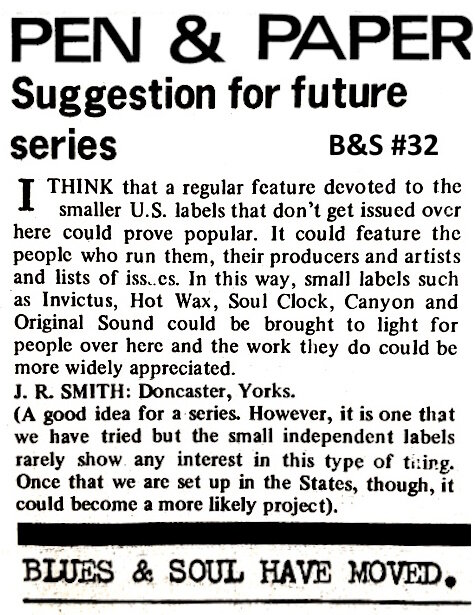-
Posts
7,237 -
Joined
-
Last visited
-
Days Won
45 -
Feedback
0%
Content Type
Forums
Event Guide
News & Articles
Source Guidelines and Help
Gallery
Videos Directory
Source Store
Everything posted by Roburt
-

REAL HUMDINGER - EDWIN STARR (WEST GRAND)
Roburt replied to Neil Rushton's topic in All About the SOUL
In 1966 Edwin was soon enjoying additional success with his "Stop Her On Sight" (& then "Headline News") 45's. "SOS" was released in late Jan 66. It made the national R&B charts in early Feb and stayed on that chart for over 2 months. On the pop side, "Headline News" entered Billboard's Hot 100 in early May & had climbed to No.89 by 21st May. So no doubt, from Feb to June he would have been much in demand for live shows across the US. Doesn't help with what shows he was doing in Dec 65 & Jan 66 though (but he was obviously in the studio for a few days during that period). Brian Epstein booked Edwin to star at London's Saville Theatre on Feb 26th 1967 but that's way too late to be applicable in this conversation. Who was appearing @ NY Apollo was regularly reported in JET MAGAZINE, however (even though he would have performed @ the Apollo in 66 & 67), Edwin's 1st mention in the mag wasn't until 1968 (with that stating he was on at the Apollo in August). -

REAL HUMDINGER - EDWIN STARR (WEST GRAND)
Roburt replied to Neil Rushton's topic in All About the SOUL
A BIT OF BACKGROUND INFO .... Edwin had his 1st US hit 45 in July 65. He was initially required to tour to promote the 45 and as it became a big hit in many different US cities, he was in demand to do shows in each of these. That also meant that he was a sought after name to be added to US package tour line-ups -- these playing cities such as Detroit, Chicago, Cleveland, LA and all the theatres on the east coast chitlin circuit (Royal, Howard, Uptown, Apollo, etc.). So Edwin undertook many live shows during 1965. Fast forward to 1966 --- that April 66, Edwin was touring across the US with the Miracles, Contours & Velvelettes. In June 66, he was part of the package tour with then new Motown act Gladys Knight & Pips. Edwin also visited the UK three times in 1966, undertaking an extensive UK tour in October 66. I believe the earlier visits were promotional affairs that also included a few club dates. If these promotional trips to the UK were at the behest of Polydor Records UK, then they were likely for a few days around May & August 66. What gigs Edwin was keen to head out of the Golden World studio to undertake around January 66 seems to have been lost in the mists of time (unless someone on here knows better) -- January 66 being the most likely time when he would have cut his version of "Real Humdinger" -- J J's version coming out in February 66. Anyone here have details of Edwin's shows in & around Detroit in Dec 65 / Jan 66/ Feb 66 as it could just as easily have been a show at somewhere like Phelps Mr. Kellys or the Flame that he was keen to get to as to a show in Cleveland or New York. -
Not watched it all yet so don't know if they do get a mention ..... But surely for UK soul 45 record buyers the likes of F L Moores and Contempo were the main players after Soul City went under but before Soul Bowl moved down from Glasgow. Ahead of the likes of Soul City being around, getting hold of US soul 45's was down to buying direct from the US (Ray Averys and Randys + discount warehouses -- if you could manage to get added to the list of folk who were sent their lists) ... OR .... bidding on auction lists you asked to be sent through the post from UK sellers (how they got hold of the many US soul 45's that were on their lists I never found out). And after Soul Bowl became a big player, the likes of Oldies Unlimited was a rival of sorts (although the quantity of rare label stuff they had was much smaller). For anyone who's managed to watch it all, do the likes F L Moores & Oldies Unlimited get a mention?
-
I got into Genobia Jeter via her 80's LP Genobia' (RCA) plus met her & her husband Glen Jones @ a Southport weekender. But she was making gospel records well before she crossed over to soul ...
-
In the 50's / 60's, lots of soul songs were 'developed' from popular gospel songs. By the 70's / 80's, the situation had completely changed around & gospel acts were doing their versions of soul songs. The likes of Rance Allen and Maceo Woods certainly following this path. But lots of other gospel acts also did the same ...
-
Lots of the gospel tracks put up on this thread are up tempo dance items ... NOT the Mildred Clark just above though ... here's one that also doesn't qualify as a dancer; to me it has more of a deep soul feel to it ...
-
-

USO arranged Tours of UK / European USA military bases
Roburt replied to Roburt's topic in All About the SOUL
QUOTE from my 1st post on this thread ... seems those employed at the USO had a 'white bias' back then. THIS IS BACKED UP by this from James Brown about his trip to Viet Nam to entertain the troops ... James Brown says that it was Bob Hope himself, interestingly enough, who would clinch the Vietnam tour at the May, 1968 State Dinner: “[He] told some of the USO people, ‘If you’re going to get anybody to perform for the troops, James Brown is the man.” . . . The sad joke at the time was that “Armed Forces Radio Network offered two kinds of music: country and western.” -

USO arranged Tours of UK / European USA military bases
Roburt replied to Roburt's topic in All About the SOUL
I found a couple of mentions of singers playing USA military bases in Germany, none at present for UK shows. But these happened on a regular basis at places like Upper Heyford, Lakenheath & Mildenhall. It seems that such visits are still going on these days as well. -

USO arranged Tours of UK / European USA military bases
Roburt replied to Roburt's topic in All About the SOUL
It's very hard to track down info on which soul acts played UK USA military bases. With Viet Nam being much better reported, that's an easier task. Just some of those that played for troops in Viet Nam were ... Barbara McNair, Rosie Greer, Teresa Graves, Toni Washington, the Ink Spots, Anita Bryant, Jackie DeShannon and more ... as already stated Joey Heatherton, the Dozier Boys & Lola Falana played shows there too. -

USO arranged Tours of UK / European USA military bases
Roburt replied to Roburt's topic in All About the SOUL
A few related videos ... Disc Jockey selects and plays record at AFN (American Forces Network) studio in B... this one is a film version I guess ... -
I touched on this subject in the 1960's UK Soul Clubs thread. But I need to take it further. The USO -- American United Services Organisation -- was set up to make US servicemen stationed abroad feel happier. Many were young men on their own, miles from home, in a strange country & feeling lonely. AFN radio was set up to bring them familiar entertainment but they still had many hours of 'down time'. In the 1960's / 70's 100's of US bases existed across Europe (in Germany, Spain, UK, Greenland, etc.), so there were 1000's of troops who needed entertaining. Many were black guys, some of these in near active combat areas (Germany in the 60's, the threat from over the Berlin Wall, etc.) Further afield there were more active combat zones (Viet Nam, etc) and the USO also organised entertainment out there (but that's mainly beyond the scope of this thread). ANYWAY, with big US bases around London + in Norfolk, Suffolk & Oxfordshire, there were lots of guys needing to be distracted from their daily miliary grind. So the USO organised tours to entertain them. Movie stars, famous sportsmen, dancers (female ones being very popular) and singers were brought over to put on shows on the US bases. Over 10 years ago, I gained access to the local US bases in Norfolk's ON-BASE NEWSPAPERS via (I think) the Norwich Library or Norwich Uni's on-line service. Thus, I was able to look through these monthly publications and check for news of who was visiting the UK and which UK based they would be performing at. This facility no longer appears to be available THOUGH I guess the actual publications are still held in Norwich. With Trump now running things in the US, he intends to scale down the US military's role in Europe, so I guess even more US based will be closed than has been the case in the last 30 years. So if we lose the bases, the USO will no longer arrange tours for US singers of UK bases. As it is, at present it's quite hard to get hold of info on who (from the soul field) toured over in Germany and the UK. It would be good if folk who have any info on such shows on British US bases would contribute their knowledge to this thread. Bases that were the most active with regard to such shows were (to my knowledge) Upper Heyford, Lakenheath & Mildenhall. I know the likes of Kenny Hamber played shows at all 3 of these bases and many other soul stars did shows in the UK and in Germany. I just don't know who & when they undertook these tours. I seem to recall a few soul singers undertaking normal UK tours in the 60's being asked to add a couple of shows @ British US bases to their itineraries (Lee Dorsey springs to mind). MORE FAMOUSLY, certain big stars tours did get a fair bit of publicity, but these were shows staged in the UK. James Brown did a tour of Viet Nam bases. Joey Heatherton also did such tours (which went down well). A less famous do-wop group also got publicity coz a couple of their members refused to go on their proposed tour in Viet Nam -- this was the Dozier Boys. Lola Falana also toured in Viet Nam, as did another black do-wop group who accompanied Marilyn Monroe on her far east tour (lots of pics of this exist but the name of the group wasn't stated -- I used to know who they were but my mind is like a sieve these days). DJ Georgie Woods also got involved at one point. A couple of gospel groups were hired by the USO to do shows on bases in the mid 60's but when checking these turned out to be insipid white Christian groups -- seems those employed at the USO had a 'white bias' back then. Anyway, I'm attaching a few pics to illustrate this topic, hope I get some input from others on this topic ...
-

New 45 - Terry Callier - I Don't Want To See Myself
Roburt replied to Mike's topic in Source Store News
QUOTE ... ‘I Don’t Want To See Myself…’ was the final release from Callier, whose career encompassed recording for .... NOT ENTIRELY TRUE. After learning that his old records were still very popular in the UK, Terry returned to performing & recording in the mid 90's. He had new releases out from 1996 through to 2009. Many of these releases also becoming very popular. -
-
Willie Herman Weems has announced that his friend Tom Williams (of the Turks, Buster & Eddie, etc.) has passed ... Tom was BUSTER .. we're losing so many at present !!
-

WHAT ARE THE BIGGEST 'MODERN' NIGHTER SOUNDS?
Roburt replied to Paraboliccurve's topic in All About the SOUL
scary 'shouty' capitals RULE OK. -

WHAT ARE THE BIGGEST 'MODERN' NIGHTER SOUNDS?
Roburt replied to Paraboliccurve's topic in All About the SOUL
In that case, YOU ARE TOTALLY WRONG and should keep your opinions to yourself. -

WHAT ARE THE BIGGEST 'MODERN' NIGHTER SOUNDS?
Roburt replied to Paraboliccurve's topic in All About the SOUL
QUOTE .."Sorry but anything containing those bloody awful synth 'pew-pews' has no place at an all-niter ..." ........ you omitted to finish your post by adding IN MY OPINION ... -
-
I've seen mentions of a club in Halifax from the mid 60's; Big DADDY'S ... It was owned by the Crabtree bothers (one of who wrestled under the name of BIG DADDY). It booked lots of R&B / mod groups before being reinvented as THE SCENE late in 66. Anyone known much about this venue ?
-
To tie in with the book of Manc 60's photos that just got a thread on here, a few Manc club related bits ... Think some useless more modern group may have taken the name of a famous old Manc club ... ... ... ALSO the group pic I've posted up (THE MOTOWN SECT) is of a Manc based mod / soul group who played lots of Manc area venues in the early to mid 60's (BTW, the guy in the middle in the college scarf is LEMMY of Hawkwind & Motorhead fame) ...
-

What was it with Casino Clubs in Lancashire ?
Roburt replied to Roburt's topic in All About the SOUL
-

What was it with Casino Clubs in Lancashire ?
Roburt replied to Roburt's topic in All About the SOUL
Missed out a mention for yet another Lancs CASINO .... that's cos I couldn't find out anything more about it than this solitary mention ... JUNE 1962; opening of Casino Pigalle Club in New Brown Street, Manchester ... (not that far from the Wheel's location). -
I'm from the superior side of the northern hills (the dry side -- God's country), so wasn't exposed to too many Lancs clubs back in my youth. Of course, I attended the Wheel niters and if we arrived in Manc too late (after midnight), another Manc niter venue (can't recall it's name). Mates who dropped off the niter scene after me used to go to Va-Va's (Bolton) but not too many of 'our crowd' lasted till the Wigan Casino opened. So we were never aware of the various 'Casino Clubs' dotted around Lancashire. As these all operated in the 50's and through the 1960's, many were frequented by the local mod / soul crowds ... BUT just why was there such a trend of calling clubs THE CASINO in Lancs ? I know of no Casino Ballrooms, Casino Dancehalls or Casino Clubs in Yorkshire (apart from betting establishments, most of which came much later). But in Lancs there was the Bolton Casino, Wigan Casino (in the same ownership in the 60's), the Burnley Casino, the Leigh Casino, the Casino Club in Westhoughton (which had been the Empire Theatre & after it's days as the Casino became the Gaiety Club). The Bolton Casino had also started out as a cinema, not sure what the Burnley & Leigh versions had started life as. I've checked on tintanet and it seems there was a Casino Ballroom on Canvey Island, a Casino Dance Hall in Mumbles (Swansea) and also a Casino Ballroom on Corporation St, Birmingham (it became the Mecca there). Back in the Manc area, there was a Casino Cinema on Wilmslow Rd but that burnt down in 1960 (before TV took over from films as the main family entertainment and many old cinemas were converted to dance halls). With our crowd attending clubs mainly across Yorkshire & Lincs (Donny, Wakefield, Sheffield, Leeds, Hull, Brid, Scarboro, Tadcaster, Lincoln, Cleggy, etc) before we were forced to head further afield (a couple of trips down to London, to Nottingham, Leicester & finally the Wheel), we were unaware that the likes of Geno Washington & RJB + Ike & Tina Turner played 'Casino' venues in Lancs. We had top venues closer to home & so had no need to venture to those far flung (to us) venues. BACK TO MY QUESTION FINALLY ... Anyone here know why THE CASINO was such a popular name for dance venues in Lancs but hardly anywhere else across the UK ?
-

Time's A Wasting - Fuller Brothers - Square clock design.
Roburt replied to Solidsoul's topic in Look At Your Box
My mate Steve Mercer (a DJ in the late 60's / early 70's at various Hull soul clubs) had the 1st copy I ever saw. He played it for me in 1969 & I instantly fell in love with it. It still wasn't easy to get hold of import soul 45's back then -- apart from bidding for them on mailed out lists from around the UK & this 45 never appeared on any of the lists I was sent. So I went searching for info on the group & the label. At the start of 1970, I wrote into Blues & Soul asking about stuff I was chasing on labels such as Soul Clock & Original Sound -- suggesting they did articles on such small US indie soul labels. They got my letter & reacted to it by publishing it (& a reply) in the April 1970 edition of the mag. Steve Mercer decided he needed a car more than his 45 collection around 1972, so gave up DJing, sold up and bought the car he wanted. He can't remember these days who ended up with his Fuller Bros 45. P.S. back at the time I wrote my letter, Invictus & Hot Wax didn't have a UK outlet yet -- that came about in mid August 1970.





